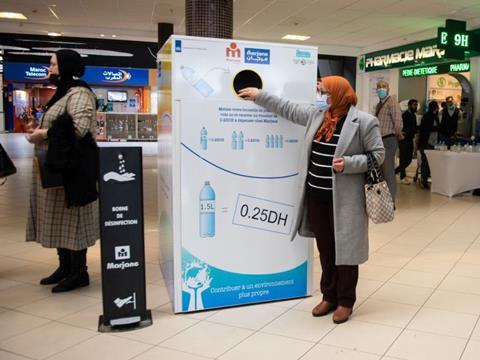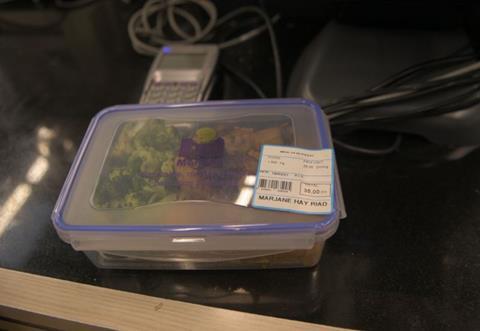
In the latest in our series of interviews with the Sustainability Awards 2021 finalists, we find out about MOSSUP, a collaboration between Searious Business and Moroccan supermarkets that addresses the issue of plastic pollution in Morocco.
Congratulations on being selected by the international judging panel as a Sustainability Awards 2021 finalist! Could you please introduce your successful entry and what’s innovative about it?
We are introducing our MOSSUP (Moroccan Supermarkets tackling Single-use plastics) project, trialling solutions to reduce the use of single-use plastic packaging in two supermarket chains in Rabat.
We are working with the Marjane and Carrefour supermarkets to address the urgent issue of plastic pollution in Morocco. As of 19th March 2021, supermarket customers can earn loyalty card rewards by opting for reusable packaging at the delicatessen counters and returning their PET plastic bottles to be recycled. The MOSSUP project is run by Searious Business and funded by The Netherlands Ministry of Foreign Affairs programme for Small Business Innovation Research. Our team have partnered with Association Marocaine pour la Protection de l’Environment et du Climat (ASMAPEC), which provide on-the-ground knowledge and assistance in Morocco. The Moroccan Ministry of Industry, Trade and Investment support the bid to find solutions for waste from single-use plastic.
At the moment, there is no formal collection scheme for plastic waste in Morocco. As a result, all plastic goes into the general waste, ending up in landfill or leaking into the environment. This ambitious action to present solutions that fit the circular economy could bring about significant and lasting change to the country in terms of environmental and financial benefits. The Moroccan public has made it clear that they are ready to embrace sustainability towards plastic. We hope the results of the trials will encourage legislators to support lasting change in the country.

What are the environmental challenges in packaging that your entry addresses, and what impact do you hope it will make?
The WWF estimates that as much as 55% of plastic waste leaks into the Moroccan environment due to uncollected trash and illegal dumping. This rubbish gets into the Mediterranean and affects fishing, tourism and shipping, not to mention the adverse effects on marine biodiversity. By introducing circular schemes such as these, it is estimated that over 26 million bottles could be collected every year in Rabat alone. This would equate to savings of 790 tonnes of CO2 and 530 tonnes of plastic waste avoided.
I’d like to ask you about the broader picture beyond your successful entry. ‘Sustainability in packaging is multi-dimensional – both in terms of objectives and challenges. Could you comment on the most important roadblocks you identify from your position in the value chain and the kinds of solutions you would like to see addressing them (e.g. areas of technological innovation, collaboration, regulation)?
Searious Business is committed to stopping plastic waste from entering our ocean. We help major brands and organisations rethink their packaging and business models to reduce waste, introduce reuse systems, and find ways to recycle what we can’t eliminate.
The biggest roadblock is in people’s minds. So often, companies only see costs. We aim to show them that the benefits far outweigh any initial investment.
Reducing is the most simple; eliminate what you don’t need, redesign towards recyclability or look at alternative materials where appropriate.
Persuading brands to completely rethink their business models and introduce reuse and refill systems is a little more complicated. For single-use packaging to be eliminated, it will take ingenuity and collaboration from brave pioneers in the food industry.
We all dream of a world where all our waste is recycled back into products in a perfect closed loop. This dream is, unfortunately, a long way off. Manufacturers need to improve their designs for recycling and also to include recycled content in their products and packaging. Technology is advancing, but we must work with the system we have now, so producers should take end responsibility for their products. Don’t bring a product to market if there are no facilities in the distribution region to manage its waste. This is where legislation and regulation will play a vital role in the next few years.













